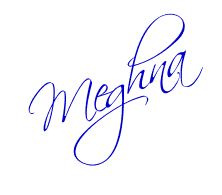
“Books are the quietest and most constant of friends;
they are the most accessible and wisest of counselors,
and the most patient of teachers.”
- Charles W. Eliot
Books are the life and soul of a writer, author or even a blogger. Life without books seems unfeasible. And every second person reading a website or blog, needs a good book to read. So why not for a change, review a recent book you read and provide your reader with a chance to learn.
Do not know how to write a book review? Do not worry! Here are 10 tips that might help you out!
1. Read your book thoroughly
One cannot become a doctor without having the particular qualifications. In a similar fashion, it is necessary that you have knowledge about your subject before you are keen to write or share about it.
2. Gather more information
Though you might be knowing all about the book that you thought important, before embarking on writing a review, it is always better to read more about the book from Wikipedia or read another review of the book from the net. This help might prove valuable.
3. Make a rough draft
Write a rough outline of the plot, the flaws or anything that you find worthy of wiring. Only then, should you get to editing it and adding the additional information.
4. Be unique
While writing a book review, it is important that the reader is not reading a review of someone else. Often, reviewers tend to find the easiest way out by just copying down the book information/review at the back cover and camouflaging it ingeniously as their own!
5. Never reveal the whole plot
I have noticed often that writers tend to find it exciting to reveal the major or minor secrets of the plot (This applies to fiction stories, novels etc.). My fun of reading the last Harry Potter book had been spoiled for mostly the readers had leaked the secrets of the novel on the net. Please care about the excitement that a reader experiences so do not reveal the whole plot but as much as you think you would have liked to know if you were reading the review.
6. Add your own element
The main point of writing a review is letting the reader know what YOU think about it. So remember to write down any improvement in the book you think possible and all flaws or good points about the book.
7. Remember the author
I have read reviews where the plot and everything else about the book is mentioned, but unfortunately the reviewer forgets to tell about the author.Be sure to credit or criticize (as you think likely) the author. Whatever you do, do not leave him out….after all, it is he who created the book and some credit is certainly not denied!
8. Be sure you are catering to the right audience
Do not go writing a book review of Harry potter on a technical blog. Though it would be good, if you pointed out or included about the book in a post but try not to completely linger from your blog content, just to fill in posts!
9. Your Judgement
A final verdict on whether you think the reader should spend money on the book is necessary. If you do not think so, please write that aptly in your post.
10. Rate the Book
I do not do this in my posts but now I too have decided to include that. If you are keen on writing reviews, a wonderful idea is the rate the book on a scale of 5 or 10. The audience might get a better idea!
Whether these tips proved to be helpful or not, I would be grateful if you could share through your valuable comments. Any additions or suggestions are welcome.
Related Posts:
- Digital Fortress- by Dan Brown
- Angels And Demons- by Dan Brown
- Fatal Cure- by Robin Cook
- David Copperfield- by Charles Dickens
- Murder On The Orient Express- by Agatha Christie



